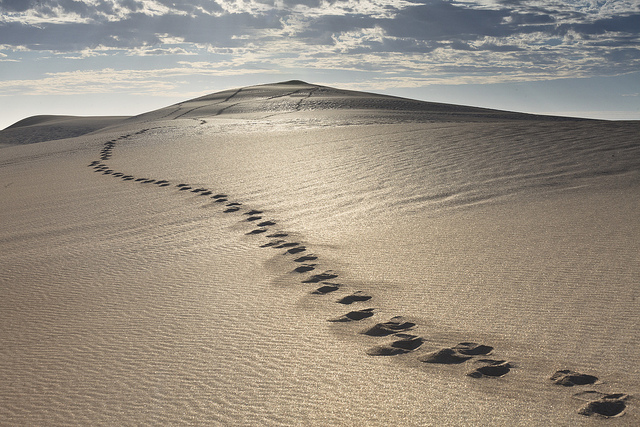A quick Google search of the expression “Covid fatigue” yields over 392 million results. Incredible, considering that less than a year ago, none of us really knew what Covid even was. Fatigue, boredom or “ennui” are states of being that we are all too familiar with; a universal experience that can be attributed to many factors. One important trigger of boredom is our inherent need for novelty, our drive for the adrenaline rush that comes from doing something new and exciting. It can also result from a lack of self-awareness: “Not knowing what we are searching for means that we lack the capacity to choose appropriate goals for engagement with the world (Eastwood, 2012).” The leap from boredom to fatigue is not a great one, and is a leap most of us have already made today. With no end in sight to this pandemic, we are “trapped” in a seemingly endless cycle of hand sanitizer, masks, online learning, in-person learning, testing, quarantine…. “rinse and repeat”. In the humdrum that is our daily experience, remembering who we are and our inherent mission in life may be the best antidote, a lesson to be learned from our forefather Yitzchak.
Parshat Toldot gives us a glimpse into the life of Yitzchak himself: “This is the story of Yitzchak, son of Abraham…” (Bereshit 25:19), the only account of his life in the entire narrative of the Torah, a life that has been described as mundane or even benign. The parasha first establishes Yitzchak’s place in the lineage of our people by reminding us that he is the son of Avraham, inheritor of his legacy. But not only does he inherit his father’s legacy, Yitzchak appears to relive his life.
Yitzchak leaves his home due to famine, just as his father did, and makes his way to Gerar, the land of the Philistines. As his father before him, he is blessed with material wealth, aggravating the locals, he pretends that Rivkah, his wife, is his sister, as did his father years before, to protect her from their king, Avimelech, and he redigs the very wells his father had and even gives them the same names as his father did. Thus: he “digs anew the wells which had been dug in the days of his father Avraham and which the Philistines had stopped up after Avraham’s death; and he gave them the same names that his father had given them” (Bereshit 26:18). Essentially, he appears to have dedicated his life to restoring all that his father had created. The Rambam points out that these seemingly mundane episodes teach us of the greatness of Yitzchak Avinu.
Rabbi Yitzchak Hutner explains that each of our forefathers represents a different aspect in the service of Hashem. Avraham introduced faith, emuna, the awareness of Hashem, Yaacov created a national mission from Avraham’s life’s work. Yitzchak, he states, was the first descendent to be born Jewish and thus embodies the “inborn kedushah” of being a Jew. He did not create big waves or make great changes to the faith. Yitzchak’s greatness is in choosing to overcome temptation and live a life in the service of Hashem. He did not need to change the world or begin a new religious movement, his greatness was in staying the course and in continuing on the path set by his father before him. Yitzchak demonstrated self-discipline and internal strength. Furthermore, as Rabbeinu Bachya states, his actions are the foundation of the concept of mesorat avot, following in the traditions of our fathers for all future generations of the Jewish people. Yitzchak was not a trailblazer. He taught us the importance of tradition, of remembering where we came from and who we came from and faithfully following that path. Despite strife, trials and conflict, Yitzchak clung to his inner strength, held fast to who he was and kept his eyes ahead. And not once does he seem fatigued or bored.
As Sivan Rahav-Meir writes, “It is very exciting to initiate something. Continuing is far less glamorous.” It is the pioneers, the innovators who garner fame. As Jews, it is the unsung heroes, the Yitzchaks of the world, who stay the course, who continue in the path of their forefathers, who maintain the unbroken chain that links us to Moshe Rabbenu, that have sustained our faith for thousands of years. As a people we have seen strife and conflict and challenging times. We have experienced tremendous loss and challenges to our faith. But through it all, it is that very faith that has sustained us. We clung to our ways and our beliefs, to our Torah and mitzvoth and through them found the strength to forge ahead. Yitzchak was the first of our people to be born Jewish, to be born with the inherent kedusha that lies within each and every one of us. It is time for us to lean into who we are as a people and draw strength from our legacy to forge ahead.
Shabbat Shalom,
Dr. Laura Segall
Head of School

